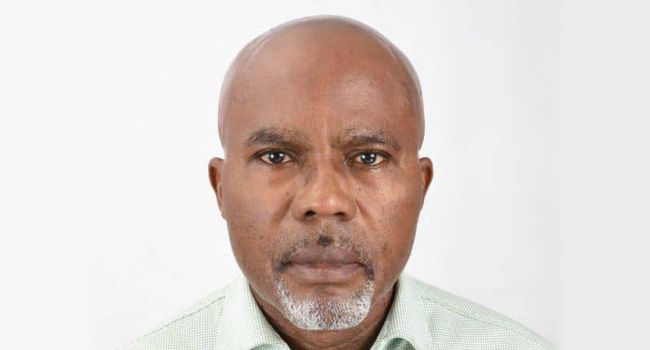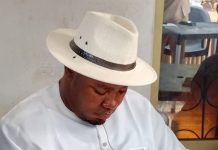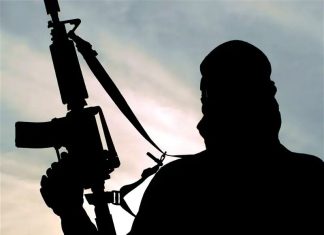IT’S less than 10 days away. That’s if the planned protests against hunger, poverty, bad governance etcetera, were to materialize. The protests are scheduled for August 1-10. The organisers have a name for it: Days of Rage. The protests are designed to happen simultaneously across the country for 10 consecutive days. Unless Nigeria has changed, this project and especially its duration looks like a tall order.
Nigeria of the 1960s, 1970s and 1980s appear to be a long gone era. The period has almost been blotted from our collective memories. During those epochs, Nigerian youths, led mostly by students of tertiary institutions were upfront in opposing any government policy or programmes considered not to be in the best interest of the country. They did so in 1962, just two years after Nigeria gained independence from Britain. They fought to ensure the scrapping of the obviously one-sided Anglo-Nigerian Defence Agreement.
Alex Lennox -Boyd was the British secretary of state for colonies in 1958, two years before Nigeria was granted independence. In fact, by 1958 both the Eastern region and the Western region had attained self rule status from the colonizers. The Northern region, apparently fearing dominance by the more sophisticated regions of the south said it was not ready to govern itself and so opted to be under the suzerainty of Britain.
The 1958 memo by Lennox -Boyd encapsulated the ingredients for the Anglo-Nigerian Defence Agreement which will be handed over to the government of an independent Nigeria to sign. There was no evidence that Nigerian nationalists who were jostling to replace the British made any input into drafting the so-called Agreement. But history has it that Chief Obafemi Awolowo, leader of the Action Group (AG) political party revolted against the pact when it came to his knowledge.
So, in 1962 when Britain showed its hand for the execution of the pact by the leaders of our country, Nigerian students rose as one to march on their campuses and on the streets in the country’s major cities in opposition to the Agreement. They did not relent until Britain backed down and Nigeria backed out. There were not too many universities then nor higher institutions. And students’ leaders were not known to be acolytes of partisan politicians of the then dominant political parties such as the National Council for Nigeria and Cameroons (NCNC) and AG. The issues of ethnic or tribal affiliations were virtually non-existent.
The vexatious issues in the pact were the granting by Nigeria to Britain overflying rights and testing by Royal Air Force aircraft; and whether Britain should still have any maintenance staff on ground in Nigeria. Nigerian youths said an emphatic no because they were persuaded that it amounted to an unequal relationship and moreover there was no evidence that Nigeria contributed in framing the so-called Agreement.
Consequently, Britain and Nigeria were forced to release a statement abrogating the pact. The statement read: “The British and Nigerian Governments have been consulting together about the Anglo-Nigerian Defence Agreement. They have noted with concern that the scope and purposes of the Agreement have been widely misunderstood. In particular, fears have arisen that in consequence of the Agreement, Nigeria’s action might be impaired and that she might even be drawn into hostilities against her wishes.
Continuing the statement said: “The text of the Agreement shows that these and other anxieties which have been expressed are wholly without foundation. Nevertheless, in order to end misunderstanding, the two governments have thought it wise to reconsider the need for a formal agreement.
“As a result, they have decided to abrogate the Agreement. Each government will, however, endeavour to afford to the other at all times such assistance and facilities in defence matters as are appropriate between partners in the Commonwealth”. That was the Nigeria of the 1960s.
By the 1970s, more higher institutions including universities had sprung up. And the win over the Anglo-Nigerian Defence Agreement had bolstered the resolve of youths and students that opposing real or perceived unjust policies of the government was right and winnable. And then came 1978. The regime of Gen. Olusegun Obasanjo who succeeded the assassinated Gen. Murtala Muhammed increased fees payable by students in the universities. Hell was let loose. Students would not take it and the military regime would not back down either. Col. Ahmadu Ali was the federal commissioner (minister) of education. He had the support of the hierarchy of the ruling junta to dig in. And he did. The protesting students were no less determined. The result was bloodshed on the streets, deaths and injuries mainly on the part of the students. The students revolt was appropriately tagged ‘Ali Must Go Protests’. The protests also known as the 1978 Students Crisis was for a long time regarded as one of the most violent student agitation in this country. It was also said to be responsible for the political crisis that dogged the Muhammed/Obasanjo military regime of 1975-1979.
Apart from fees reversal, the protesting students who also boycotted lectures demanded return to democracy and rule by civilians; democratisation of government institutions; genuine independence of the country; and, the enhancement of the quality of life of the masses. Some commentators argue that the bloody confrontation ended in a stalemate but it must be noted that the military regime vacated office just 17 months after for democratically elected administration of President Shehu Shagari and Vice President Alex Ekwueme.
‘Ali Must Go’ was a turning point in relations between Nigerians and their rulers. A template was adopted by subsequent rulers to the effect that there won’t be any consequences in using brute force and deadly violence to put down protests of any type.
Fast forward to October 2020. For decades, Nigerians were at the receiving end of the brutalities of the state security agents, particularly a branch of the Nigerian Police Force (NPF) called SARS- The Special Anti-Robbery Squad. SARS was notorious for bloodletting, visiting violence on hapless Nigerian youths, acting with impunity and as if its operatives were above the law. Any youngster they found with a laptop was automatically tagged as an Internet fraudster while those who wore braided hairs (dreadlocks) were treated as vagabonds and criminals. SARS dealt summarily with such young people by extorting or executing them. Even older people were not spared. Something had to give. And it did give from October 8, 2020 when the youths took a stand by protesting and demonstrating against police violence and brutality. The protests morphed into demands for good governance.By October 20, there was a repeat of the 1978 ‘Ali Must Go’ bloodletting but this time on a higher and unimaginable scale. There was a massacre. The world was repulsed. Voices of condemnation rent the air. Nigeria had finally perfected the art of killing its children who were protesting brutality, corruption and bad governance. They were only armed with patriotic songs, waving the national flag and singing the national anthem.
First, the government, led by Maj.-Gen. Muhammadu Buhari, the affliction, a military dictator masquerading as a civilian ruler used thugs and street urchins to infiltrate the hitherto peaceful protests, to instigate violence, looting and destruction of public property. Then under the cover of darkness on October 20, the mindless regime ordered soldiers to shoot and kill our children in cold blood. The ghosts of the children who were massacred in one of the killing fields -the Lekki, Lagos toll plaza- on that particular day are still haunting the place and hunting their killers. They can pretend but they will have no peace. I believe the Good Book which says that there’s no peace for the wicked and that those who kill with the sword will die by the sword. It’s just a matter of time.
In the four years since the ENDSARS Protests in October 2020, there has been a strident campaign by a section of the Yoruba nation, an insignificant number it must be acknowledged, to hold Ndigbo responsible for instigating the protests and spearheading the looting and burning of public buildings in Lagos in the aftermath of the riots. As Nigeria moves almost inexorably towards a fresh round of confrontations which could result from the planned Days of Rage from August 1, the narrative about the Igbo being responsible for past protests is resurfacing and gaining currency. And these false and wicked narratives have always had consequences for Ndigbo. The Igbo paid with livelihoods, limbs and life in 1966 after the July counter coup. July was the crescendo of the persistent peddling of lies and propaganda that the Igbo were the mastermind of the January 1966 military coup during which some political and religious leaders of the north died. It did not matter that it was a lie because the Igbo paid a huge price.
*To be contd.
AUTHOR: UGO ONUOHA
Articles published in our Graffiti section are strictly the opinion of the writers and do not represent the views of TVN or its editorial stand.
The post OPINION: Ndigbo in the crosshairs of ‘Days of Rage’ appeared first on Latest Nigeria News | Top Stories from TVN.
Join Television Nigerian Whatsapp Now
Join Television Nigerian Facebook Now
Join Television Nigerian Twitter Now
Join Television Nigerian YouTUbe Now





